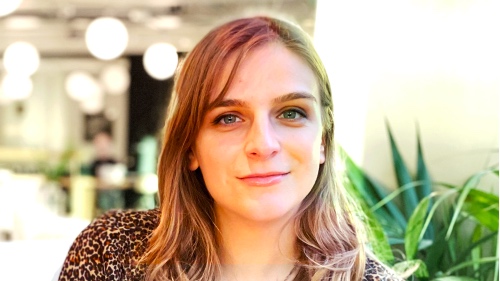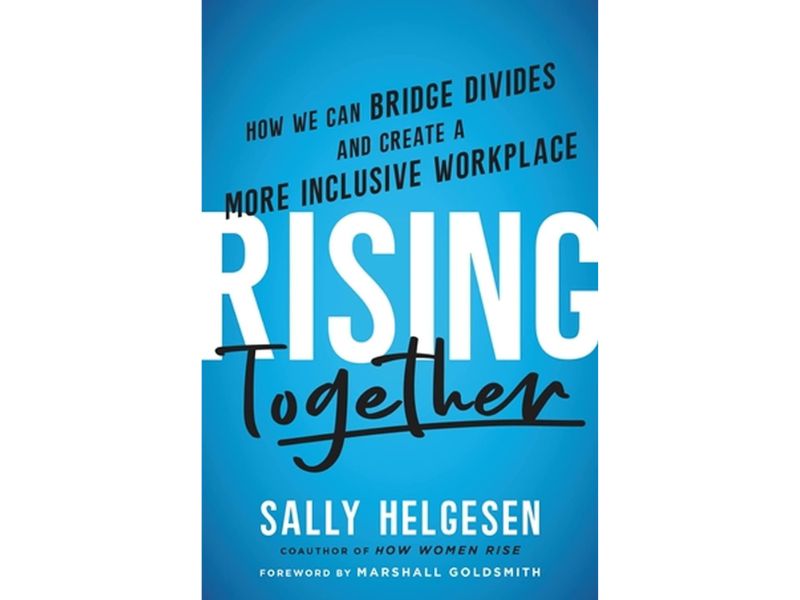In celebration of the UN World Day for Cultural Diversity for Dialogue and Development
 I recently felt the kind of joy normally reserved for long-overdue meetings with friends or that delicious piece of cake you’ve been waiting for all afternoon.
I recently felt the kind of joy normally reserved for long-overdue meetings with friends or that delicious piece of cake you’ve been waiting for all afternoon.
I felt it, quite unbelievably, whilst watching Arianna Huffington speak (here’s her TED talk, as an example) and it was due to a simple fact: here is a woman, on an important stage, speaking with an accent.
I’d never heard someone speak with an accent similar to my Serbian-Eastern-European one on such a grand stage before, and it was incredibly encouraging and inspiring to see. And it got me thinking…
See, I’m someone who does a fair amount of public speaking, be it client presentations, a conference session or delivering a lecture. I’d say I’m a very confident speaker – it’s something I genuinely enjoy and it’s an important aspect of my daily life. So if someone who engages in public speaking as much as I do feels this happy and encouraged by the simple act of hearing an accent, (if I need or enjoy this ‘nudge’ to my confidence) I can’t be alone in feeling this way. It served as an excellent reminder that I haven’t always felt this at ease in speaking up, and that many of my friends still do not…
We’ve all been in meetings where we haven’t been heard, but rather than not understood, the reason / excuse sometimes given is the accent. And there are many ways to make the accent-comment, ranging from perfectly friendly and constructive feedback to a certain tone which communicates: “It’s not that I don’t understand you, it’s that you sound odd/different and therefore I don’t believe what you’re saying”. And you will have all been introduced to someone who will tell you their actual (diverse, wonderful) name, but have then followed up with: ‘But you can call me Joe / Amy / insert something they think we’ll pronounce easily’. Now if they’re doing it because they want to shorten a long name, great! But if they’re doing it because they don’t believe we will bother with their real name, or that it will somehow affect our interaction, then it’s worth considering hat might have made them feel that way? And I’m not comfortable with whatever that was, it doesn’t belong in either our workplaces or in our lives.
It’s also not only an issue of whether or not someone is from a foreign country, there is a whole host of really diverse accents within the UK itself, with some being seen as more ‘posh’ or even more professional than others. You may remember stories of a BBC journalist, Steph McGovern, being advised by a reader that her Northern accent is a “terrible affliction”, or reports on issues like “Britons not liking accents from industrial cities, like Birmingham.”
Accent bias is a known issue
Our accents are arguably one of the most obvious signals of social and ethnic background, but their role in hiring and similar types of decisions has largely been under researched in the UK. I did some digging on my own and results show that accent bias certainly exists, and that there is a definite hierarchy of accents, but also – encouragingly – that with awareness, it can be minimised and at best, fully suppressed.
My work is in media, and – perhaps even more importantly – children’s media, so I am deeply conscious of the consequences that both negative stories and lack of representation can cause. From a very young age children explore the media available to them and it is these models that help to shape their perspectives and future expectations so it is critical that representations aren’t negative as that can warp understanding and interpretation – or even cause a child to disassociate if they can’t relate to it or if their background is misrepresented.
In a world where everyone should be given a voice, accent bias can take it away from people. The boldest may fight the negative comments and persevere, but some may change their names, train themselves out of their accents or, at worst, speak less, choosing the roles in which they don’t need to use their voice as much. And we really, really can’t afford to lose their voices.
Speak up for all
Personally, I’m fortunate to be in a workplace where we don’t only ‘allow for’ diversity, but actively encourage it. For our own practices, this has meant ensuring our recruitment criteria and job ads invite people from diverse backgrounds to apply for work. Having diverse leadership (50% of our directors are not from a traditional white British background) has meant that we have naturally designed an open workplace, but we’ve also been more intentional about this. We have an annual; set of goals for diversity and inclusion (D&I), including ensuring each employee of Kids Industries has a personal goal.
There are also two sides to what we do at KI – the grown up side and the young people’s side, and so to sit along our internal Diversity Council we’ve built up D&I protocols for our long established Junior Board of Directors too – who better to ensure KI is embracing as wide and broad a set of inputs than the next generation? And this plays directly into our work as we help shape and form characters and narratives for brands – a genuine privilege to do.
With today being the UN World Day for Cultural Diversity for Dialogue and Development, I’d actively encourage you to speak up. If you work with someone with an accent, really listen to them and if you have an accent yourself, know that it’s time to embrace it. Be different, stand out, use your voice and be heard.
According to her own stories, even Arianna Huffington herself spent much of her life being self-conscious about her accent and even tried to change it. But these days – she fully embraces it, as does this Serbian Strategy Director. Accents are beautiful.
About the author
 As the strategy director at Kids Industries, Jelena Stosic merges market and audience insight with client objectives to produce exciting and engaging campaigns.
As the strategy director at Kids Industries, Jelena Stosic merges market and audience insight with client objectives to produce exciting and engaging campaigns.
Whether supporting a start-up through developing a go-to-market plan, testing new propositions or content, researching the depths of a brand’s potential or working up a business case for new products, Jelena leads the insight and strategy teams to connect human, empathetic insights with brand intelligence. Over the past ten years, she has developed best-in-class, consumer-focused, global business strategies for clients as diverse as Xbox, WWF, Star Wars, Royal Caribbean International, PJ Masks, Warrior Cats, BBC Worldwide and Playmobil.
Jelena is also a guest lecturer at the University of Vienna, the author of multiple articles and is a much sought-after speaker at conferences around the world on topics such as family brand engagement, insight gathering and strategic planning.
WeAreTheCity covers the latest female centric news stories from around the world, focusing on women in business, careers and current affairs. You can find all the latest gender news here.
Don’t forget, you can also follow us via our social media channels for the latest up-to-date gender news. Click to follow us on Twitter, Facebook, Instagram, and YouTube.








